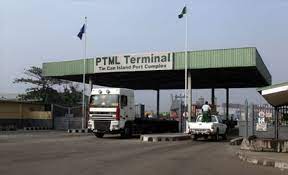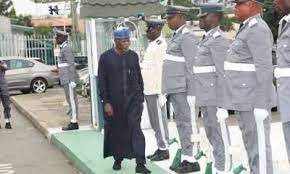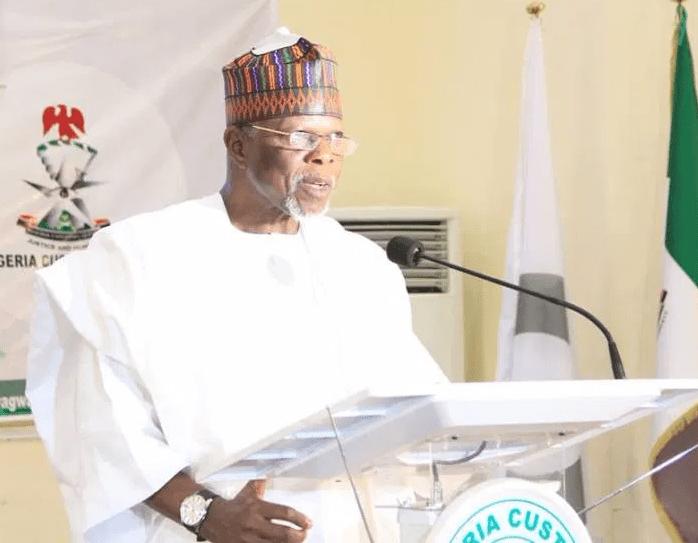Customs Report
VIN Valuation: The Imperatives and Pains (1)

BY EGUONO ODJEGBA

Dr. Nweke, maritime resource person
Over the past few years, players in the freight industry mounted a consistent and strident demand for the Nigeria Customs Service (NCS) to overhaul imported vehicles valuation system, on the heels of recurring conflicts between them and customs valuation officers.
Majority of customs brokers and freight forwarders one meet canvasses the harmonization and standardization of the valuation system, as they accuse customs of high handedness and extortion through the use of deductive valuation.
In response to this rather popular demand, the NCS last week introduced the e-valuation system known as Vehicles Identification Number-VIN-Valuation, being an artificial intelligence manual that is wholly self acting, utilizing world class data which drives documentation processes in an electronically digitalized format.
The milestone ordinarily calls for celebration as it raises the bar in ports trade modernisation. Sadly however, rather than commend Customs for the bold initiative, majority of those who have clamoured for the change and whom are primary beneficiaries to its laudable gains began to complain about the process, and taking it to a ludicrous height through organized protest, calling for its rejection.
It all started as normal complaints that attend every new innovation. As though a script was been meticulously acted, the complaints turned to loud lamentations that also rapidly snowballed into organized open protests; fueled with allegations of all sorts that also inputs fraud and lack of sincerity on the part of the federal government.
Nor did the ring leaders make any pretension to act in line with the unwritten rules of engagement that provides for a notice of intent to stage a protest. Leading the protests were notable leaders of organized freight forwarding and clearing agents unions, with history of access to government; with the Association of Nigeria Licensed Customs Agents (ANLCA) and the National Association of Government Approved Freight Forwarders (NAGAFF) in the front line.

DC Bomodi, Customs NPRO
Incidentally, the protests petered into factions, as NAGAFF backed off, leaving ANLCA and other smaller associations to continue. Nonetheless the current discordant tunes, feelings have been expressed in some quarters that perhaps, the protests ab nitio were probably veiled excuses to settle old scores.
This view was reinforced, not because the protesters didn’t deem it necessary to play by the rules; but more so, with reported resort to recruit non freight forwarding and clearing operators to join in grounding port activities.
Instructively, concerns were raised in some quarters that certain questionable characters may have hijacked otherwise simple complaints by unsuspecting innocent stakeholders, as a means of driving a wedge on the path of the modernization, just so to sustain the old order.
To underscore the unspeakable intentions of the protest organizers, some of their read “We don’t want valuation”, which immediately reveals not only the hollowness of their arguments against the VIN Valuation, but the horrifying mind set to hold a nation hostage based on narrow personal desires.
Another disturbing revelation occasioned by the protest and infighting by the ring leaders is that those the system appeared to have continually compelled to tow the path of compliance in tax obligation and ethical responsibility found a golden opportunity as it were, to seek to settle scores with the customs service.
A society like ours where majority of citizens regard payment of tax as a burden they would rather evade, tax collectors like the Customs and its operatives are always at the receiving end; constantly vilified and lied against even at the most auspicious of circumstances.

Amiwero, President, MDNLCA
Close observers in the customs trade corridor knows that customs trade compliance irritates some characters, who would rather they dictate the pace and do as they please. Should the Customs insist, then, the resort to scandal and blackmail becomes very attractive, at the least opportune time.
While above reality is just a fraction of the industry, those who wish to remain compliant, and there is a huge tribe of them. Investigation reveals that this later group refused to participate in the protest, not perhaps because they didn’t have complaints, but because they are fully aware that every new policy requires time and cooperation to stabilize.
While government have a duty to look at the unfortunate development in order to separate the truth from untruth and distortions, all stakeholders including irrespective of their affiliations in the recent ugly incident, must be encouraged to come onboard.
The agents have alleged among other things that the NCS knowingly imputed incorrect information into the data base, designed to trigger a fraudulent and wrong value sequence already integrated into the price modules. They also alleged that the policy was forced down their throat as neither the Federal Ministry of Finance, the Central Bank of Nigeria (CBN) nor the NCS, carried them along during the conception and planning stage.
Despite that the NCS has debunked above misgivings and allegations, as the fulcrum of their angst and opposition, it is incumbent on government to disabuse their minds through fresh sensitization and enlightenment, not only for the benefit of doubt for the majority that may have been left out through their own fault; as well as for the vocal brackets, whose voices and opinions cannot be wished away.
In the same vein and for record purposes and clarity, it is necessary to put the issues in their right perspective, only if to state the facts and clarify the ‘wrong impressions’ that has so far been peddled, far and wide.
There is need to call out those who have raged against the Customs for allegedly pushing an e-valuation system that is cost manipulative, anti-business and anti-people; so that history is not abused.


Comrade Adeyanju, President MWUN
In this, there was a convergence of claim by all the registered freight forwarding and customs agents associations that NCS fed the new valuation system with arbitrary value templates. The customs service has also dismissed above allegation as untrue and misleading. There are others who advanced other views weighing on alleged illegality of the e-valuation.
According to the National President of the National Council of Managing Directors of Licensed Customs Agents (NCMLCA), Mr. Lucky Amiwero, the e-valuation is inconsistent with the World Trade Organisation (WTO) protocols, based on which he dubbed the new policy ‘illegal’.
He also worried that the system was not approved by the FMOF, noting that Customs was wrong to have introduced the system on the strength of the clamour by some players, and demanded its immediate scrapping.
Amiwero explained that those who demanded for harmonized digital valuation were uniformed clearing agents who he argued didn’t understood the universal valuation system in Customs operation. He further noted that there is no uniform global freight rate, hence there can also be no uniform assessment of import value.
He further explained that what the WTO law advocated is transaction value, which is at variance with advertised internet value, which he said the new policy relied heavily upon. According to him, universal valuation of goods is based on 39 principles including the commercial value, time of arrival, quality of products, mode of transportation, etc; and that it is wrong for NCS to isolate the whole elements in preference for market value as the determinant factor.
A well sought after maritime resource person who have served in more than fifty presidential committees, Amiwero lamented that that the urge to meet progressively increasing revenue targets may have been responsible for the introduction of the VIN-Valuation, he said was designed to optimize revenue collection at the expense of trade facilitation.

, Mustapha, ANLCA BoT Chairman
However, the Customs National Public Relations Officer, Timi Bomodi accused the agents of insincerity and he maintained that new valuation method was based on international value of vehicles. The system he said is powered by a universal valuation database which is devoid of human contact; and which is keenly monitored by AI, to promote transparency.
A Deputy Comptroller of Customs, Bomodi explained that the introduction of the e-valuation system was predicated on popular demand by stakeholders, to stem observed differentials in valuation of vehicles of same make and age at the various ports.
He lamented that after customs management has taken the trouble to automate import valuation system, some stakeholders the initiative was meant to serve decided to take advantage of their access to the media to cast aspersions on the new digital valuation system, which he said is world standard.
In fairness to all concerned, findings show in the course of the agitation that the actual reasons for the protest was the sudden realization by non compliant traders that the new system threw up higher import value than what was obtainable during manual assessment, hitherto.
There are also a groups of industry players who appeared to have fallen for propaganda that government, particularly the customs, have pre-wired the value database with wrong template.
For instance, an agent who spoke with this reporter in confidence said what whereas stakeholders are not against the modernization of the valuation process, but against what he called customs arbitrary data pre-set; noting that the attempt was in bad faith and orchestrated as an internal sabotage mechanism’ designed to lead to the failure of the self same e-valuation system created by the service.
His words, “I don’t think stakeholders are against automation or modernization! Recall that it was stakeholders who have been clamoring for automation through demand for uniformity in valuation of motor vehicles. The problem is not with stakeholders but the Federal Ministry of Finance, Central Bank of Nigeria and Nigeria Customs Services.
“I believe the NCS is trying to take a Jew ride by creating crises so that the laudable government policy will be rejected because it’s not in their interest! They have decided to give value on vehicles based on the first price tag of dealers and auction platform forgetting that a vehicle that was put on auction for $20,000 can be sold for $4,000”, adding:
“They are playing a bad card so that the freight forwarders will reject the policy, so that the bazaar will continue, the chop, I chop regime!”
But the CNPRO debunked the above as a routine historical misgiving usually advanced to give the service a bad name.
“In recent times the concensus among clearing agents on the valuation of used vehicles appear to favour a harmonized value system that is consistent across all Customs platforms in Nigeria. They insisted that the same make and model of cars should be made to pay the same amount of duty.
“These agents also demanded the discontinuation of the discounted value method which allowed for the subjective considerations of officers in the Customs Valuation Unit who rely mainly on the book value of vehicles discounted at a fixed rate over time.”
Bomodi explained that no sooner their prayers was answered this year with the introduction of VIN- Valuation, the same agents began to sing a new tune, and have been hell bent on finding faults with the system.
He said the new e-valuation is capable of aggregating values from countries of export, consistent with make and model of cars for the purpose of assessing duty.
“This system uses Artificial Intelligence (AI) to pull together trade data representing a range of values consistent for each car make and model using the Vehicle Identity Number (VIN). It is totally devoid of human inputs by NCS officers, and enables easy and fast assessments necessary to process duty payments. Indeed time motion studies confirm a maximum of 6 hours between automated assessments and release of cars using VIN-Valuation.”
…TO BE CONTINUED TOMORROW





























